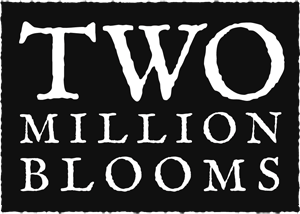I was recently pointed to the Heritage Radio Network and their coverage of the 2016 Good Food Awards. which includes Carlo Petrini’s inspiring keynote and Sarah Wiener’s excellent closing remarks.
Deserving of special mention on this blog is Beth Conrey’s address on behalf of the honey category. A winner herself for Bee Squared Apiaries Rose Honey, Beth’s spot-on speech recognized the marvelousness of the honey bee, the state of honey in the U.S. and what actually makes the food produced by the honey category winners‘ “good.” Have a listen to her speech or read it below (shared with Beth’s permission).
Bees have been revered throughout human history because of their ability to produce honey—the nectar of the gods! The sound of humming bees is synonymous with tranquility and productivity. Every farm used to have a hive or two. But conventional agriculture was replaced by industrialized agriculture and with industrialized agriculture came industrialized apiculture. Pollination—especially almond pollination—became king and honey was no longer the primary source of pride and income for beekeepers.
The honey bee became just another form of livestock and the public became afraid of the most beneficial insect on the planet. The honey itself became “genericized” through the homogenization of varietals, pasteurization to improve the shelf life of the only food product on the planet without one, and ultra filtration to remove evidence of point of origin so that honey from countries with lower costs of production can enter the market without being traced by their pollens. Much honey, indeed all cheap honey, is not even honey at all as there is no national standard of identity for it. Honey is simply called honey. But all honey is not equal. The apiaries represented here this evening embody this higher standard of production and animal care. Their websites are dotted with adjectives that make your mouth water: exquisite, raw, delicious, artisanal, sustainably-harvested, treatment–free, unadulterated, local, pure, unpasteurized.
These beekeepers have revived varietal honey. I urge each and every one of you to taste the honey from each and every one of us so that your palate will learn and appreciate the varietals we produce: buckwheat, saw palmetto, quince, wildflower, clover, sage, mesquite and orange blossom to name just a few. These honeys all taste like the flowers that produced the nectar that the bees collected. And none of them taste like any other of them or like what you find on the shelf at a national grocer. These beekeepers are stewards of their insects but they do not stop there. Many of them are also active in their regional and national associations and generously share their beekeeping knowledge and passion within these organizations and with the general public.
I encourage all of you to:
B-e- e supportive of our efforts with your purchases.
B-e- e considerate. Plant flowers for pollinators and cease pesticide use.
B-e- e the change you want to see in global food production and consumption.
Thank you.
There is also an excellent TEDxCSU Talk by Beth entitled, BEE-have so we can BEE-have, which is worth a watch/listen.
